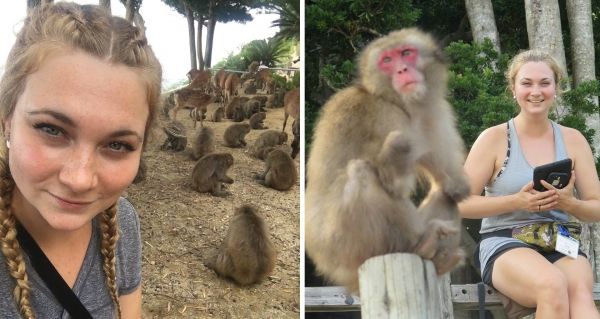The list of man-made threats facing the world’s non-human primates is depressingly long. Deforestation, poaching, the exotic pet trade and infectious diseases — all are contributing to the decline of the global population of apes, monkeys and prosimians such as lemurs.
In a new paper published in the journal Climatic Change, Brogan Stewart argues that climate change may count as yet another threat. A current PhD candidate studying animal behaviour, Stewart wrote the paper as an undergraduate honours student. She worked under the supervision of assistant professor Sarah Turner and professor and Concordia Research Chair in Climate Science and Sustainability Damon Matthews, both in the Department of Geography, Planning and Environment.
Projecting heat spikes
Stewart began looking at the effects of climate change on primate habitats with spatial data from the Coupled Model Intercomparison Project Phase 5, which estimates regional and seasonal temperature change per unit of CO2 emission, and range data of 426 separate primate species and subspecies, courtesy of the International Union for Conservation of Nature. Using these figures, she was able to project the effects current and estimated future global temperature increases would have on the precise territories that were home to particular primate species, based on projected emissions of CO2.
Read more at Concordia University
Image Credit: Brogan Stewart


